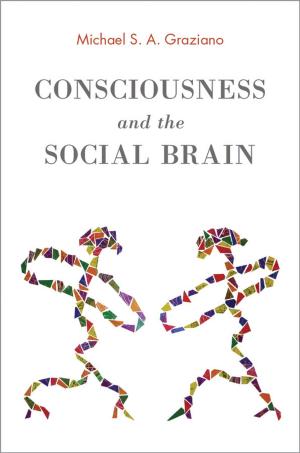Values Clarification in Counseling and Psychotherapy
Practical Strategies for Individual and Group Settings
Nonfiction, Health & Well Being, Psychology, Counselling, Clinical Psychology, Medical| Author: | Howard Kirschenbaum | ISBN: | 9780199989782 |
| Publisher: | Oxford University Press | Publication: | March 6, 2013 |
| Imprint: | Oxford University Press | Language: | English |
| Author: | Howard Kirschenbaum |
| ISBN: | 9780199989782 |
| Publisher: | Oxford University Press |
| Publication: | March 6, 2013 |
| Imprint: | Oxford University Press |
| Language: | English |
This work meets a long-standing need in the helping professions by being the first and only comprehensive book on how counselors and psychotherapists can work with clients around values, goal-setting, decision-making and action planning. Helping clients determine their priorities, set goals, make decisions, and take action to improve their lives are common tasks for virtually all helping professionals when engaging with clients. This is the process known as "values clarification" (or "Values Clarification"). While counselors and psychotherapists widely practice values clarification-some knowingly, others unaware-they typically do so with a limited understanding of its theory, methods and various applications. This book demonstrates, with great precision, case studies, and hundreds of clinical examples, how counselors and psychotherapists in many fields can ask good clarifying questions, conduct clarifying interviews, and employ dozens of values clarification strategies with individuals, couples, families, and groups. To illustrate how values clarification can be used to explore a myriad of counseling topics, the examples throughout the text are often grouped around more specific applications for marriage and family counseling, career counseling, substance abuse and recovery counseling, geriatric counseling, grief counseling, pastoral counseling, financial counseling, school counseling, rehabilitation counseling, counselor/clinical education and supervision, health counseling, and personal growth. There are clear descriptions of what values clarification is and is not, theory and research, multicultural and diversity issues, and how counselors and therapists can handle value and moral conflicts with clients. Values clarification is compared and contrasted to other approaches to counseling and psychotherapy, including person-centered, cognitive-behavioral, reality therapy-choice theory, existential, individual psychology, solution-focused, narrative, motivational interviewing, acceptance and commitment therapy, appreciative inquiry, life coaching, and positive psychology.
This work meets a long-standing need in the helping professions by being the first and only comprehensive book on how counselors and psychotherapists can work with clients around values, goal-setting, decision-making and action planning. Helping clients determine their priorities, set goals, make decisions, and take action to improve their lives are common tasks for virtually all helping professionals when engaging with clients. This is the process known as "values clarification" (or "Values Clarification"). While counselors and psychotherapists widely practice values clarification-some knowingly, others unaware-they typically do so with a limited understanding of its theory, methods and various applications. This book demonstrates, with great precision, case studies, and hundreds of clinical examples, how counselors and psychotherapists in many fields can ask good clarifying questions, conduct clarifying interviews, and employ dozens of values clarification strategies with individuals, couples, families, and groups. To illustrate how values clarification can be used to explore a myriad of counseling topics, the examples throughout the text are often grouped around more specific applications for marriage and family counseling, career counseling, substance abuse and recovery counseling, geriatric counseling, grief counseling, pastoral counseling, financial counseling, school counseling, rehabilitation counseling, counselor/clinical education and supervision, health counseling, and personal growth. There are clear descriptions of what values clarification is and is not, theory and research, multicultural and diversity issues, and how counselors and therapists can handle value and moral conflicts with clients. Values clarification is compared and contrasted to other approaches to counseling and psychotherapy, including person-centered, cognitive-behavioral, reality therapy-choice theory, existential, individual psychology, solution-focused, narrative, motivational interviewing, acceptance and commitment therapy, appreciative inquiry, life coaching, and positive psychology.















